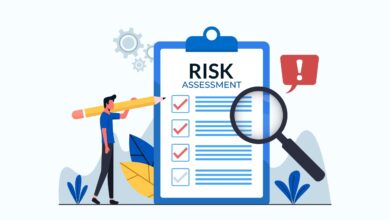Exploring the Diversity of Regression Testing: Different Approaches and Their Significance

Regression testing is an essential quality assurance process in software development. Retesting a software application is important to verify that recent code changes, updates or enhancements do not affect the existing functionality, in a way. This testing approach ensures that the software remains reliable and free of bugs as it evolves.
In this article, we will explore types of regression automation testing. Each type serves a purpose and has its scope making them valuable tools for maintaining the quality of software.
Corrective Testing:
Bug fix testing, also known as testing, aims to validate the resolution of a defect or issue that was found in the previous version. This form of regression testing ensures that the bug has been eliminated and that the fix hasn’t introduced any flaws. Corrective testing plays a upholding software reliability and ensuring user satisfaction.
Re-test All:
Re-testing all, as the name suggests, involves running the entire suite of test cases after any code changes. This thorough method instills a sense of assurance in the software’s reliability. It guarantees that all current features continue functioning as intended after adjustments though it may require an investment of time and resources.
Selective Regression Testing:
When you face situations where it’s not feasible to execute the set of regression tests you can resort to regression testing. In this approach, testers choose a subset of test cases that are likely to be impacted by code modifications. By doing so we can optimize our testing efforts by concentrating on the important areas while still ensuring sufficient test coverage for the modified sections of the application.
Progressive Regression Testing:
Progressive regression testing is a method that follows an approach. It involves incorporating test cases into the regression suite as the software evolves. This approach ensures that test coverage expands gradually which effectively helps in identifying any regressions caused by feature introductions or modifications, in the code. It’s particularly valuable in agile development environments.
Complete Regression Testing:
Complete regression testing entails running all test cases in the regression suite after every code change. While this approach provides the highest level of confidence in software quality, it can be resource-intensive and time-consuming. It is typically reserved for critical releases or major updates.
Partial Regression Testing:
Partial regression testing involves running a subset of test cases that focus on specific areas or functionalities of the application affected by code changes. This approach strikes a balance between comprehensive testing and resource efficiency, making it suitable for medium-sized projects with moderate update frequencies.
Unit Regression Testing:
Unit regression testing is the most granular level of testing, focusing on individual units or components of the code. Developers often perform unit regression testing as they make changes to their code. It ensures that the specific code changes do not introduce defects in the isolated units. Unit tests are typically automated and can be executed frequently during development.
Conclusion
Regression testing plays a role in maintaining the quality of software by guaranteeing its reliability and defect-free nature as it progresses. Opkey revolutionizes the field of software testing and quality assurance bringing forth functionalities that streamline testing procedures and boost efficiency. Its standout feature is no-code test creation, democratizing testing and allowing anyone to create automated regression tests with a simple drag-and-drop interface.
Opkey’s vast pre-built test accelerator repository includes over 30,000 test automation cases, expanding regression test coverage from day one. The Change Impact Analysis report provides insights and prioritizes test cases, optimizing testing efforts.
Opkey’s self-healing script capability diagnoses and fixes test failures with a single click, reducing maintenance efforts by over 80%.
Finally, Opkey’s end-to-end testing ensures flawless ERP integrations and customizations after each software change, ensuring operational excellence.




